General Secretary To Lam and other Party and State leaders visit the Exhibition "Achievements in private economic development and booths displaying products of private enterprises"_Source: nhandan.vn
Some theoretical issues on building an independent, self-reliant economy and actively and proactively integrating internationally
Building an independent, self-reliant and internationally integrated economy is a consistent policy in our Party's innovation policy and has achieved extremely important results. An independent, self-reliant economy in the context of international integration is an economy that ensures macroeconomic stability and major balances of the economy, with developed fundamental economic sectors, first of all fundamental and supporting industries, ensuring the country's effective participation in international integration on the basis of promoting comparative advantages, minimizing dependence on foreign countries in terms of technology, resources, and markets, and being resilient to risks from external shocks, and maximally protecting national interests.
The Party's Platform and Documents always emphasize the relationship between building an independent, self-reliant economy and active, deep and wide integration into the region and the world . The Platform for national construction in the transitional period to socialism (supplemented and developed in 2011) clearly states: "Combining national strength with the strength of the times, domestic strength with international strength, in any circumstances, it is necessary to firmly maintain the will of independence, self-reliance and uphold the spirit of international cooperation, highly promote internal strength, and at the same time take advantage of external strength" (1) . The Political Report of the 11th Party Congress affirmed that the principle of independence, self-reliance associated with solidarity and international cooperation is the core principle, ensuring the combination of national strength with the strength of the times, promoting internal strength, taking advantage of external strength. In which, independence, self-reliance, and internal strength are the basis and foundation to ensure effective cooperation. The 12th National Party Congress documents provide specific directions for all aspects of foreign affairs activities to integrate the country deeply and widely into the region and the world on the basis of maintaining the independence, sovereignty and territorial integrity of the Fatherland. The 13th National Party Congress documents continue to affirm the above contents, concretizing the relationship between independence, autonomy and international integration for each period of the country's development. The 13th National Party Congress Political Report emphasizes: "Consistently implement the foreign policy of independence, autonomy, peace, friendship, cooperation and development, multilateralization and diversification of foreign relations. Ensure the highest national interests on the basis of the fundamental principles of the United Nations Charter and international law, equality, and mutually beneficial cooperation. Combine national strength with the strength of the times, proactively and actively integrate comprehensively and deeply into the international community; Vietnam is a friend, a reliable partner and an active, responsible member of the international community" (2) . “Between independence, autonomy and international integration” is identified as one of the ten major relationships that need to continue to be firmly grasped and well handled.
Building an independent and self-reliant economy in the context of international integration means building an economy with real strength and development capacity, which can stand on its own, ensure safety, be less vulnerable and successfully respond to negative impacts from the outside of the international integration process. The content to determine an independent and self-reliant economy is expressed in many different specific aspects, including the following main contents: 1- Having guidelines, institutions and policies to develop an independent, self-reliant and internationally integrated economy that is correct, effective, not dependent on the outside, suitable for the country's reality and world development trends; 2- An economy with a scale, fast growth rate, stability, sustainability, reasonable economic structure and high competitiveness; 3- Having a complete, synchronous and interconnected system of markets between domestic and international markets to ensure the smooth operation of the economy; 4- Building a system of reserves, regulating supply and demand of essential and strategic goods and products to ensure independence, autonomy, and proactive response to crises, interventions, or threats to the economy from outside; 5- Building foundational and spearhead industries with advanced science and technology, high technological capacity; having human resources that meet development requirements, especially high-quality human resources; 6- Ensuring safety and sustainability of key sectors and fields, the lifeblood of the economy such as finance, currency, banking, energy, resources, transportation, etc.
Building an independent and self-reliant economy is an important part and foundation for building and protecting the independence and self-reliance of the country in all aspects and has a dialectical, inevitable, objective relationship, mutual impact, promotion and mutual support with international integration. Each country must have independence and self-reliant to be able to proactively integrate internationally and thus international integration will bring about efficiency and success. Especially, in the context of globalization and strong development of international integration as it is today, no country can stand outside, isolate itself and develop. International integration is an inevitable and objective requirement for development for every country, whether large or small. Only with independence and self-reliant can one proactively participate and choose participation to meet national and ethnic interests. On the contrary, the country cannot develop well, promote its potential and comparative advantages, promote its internal strength, and take advantage of external resources without deep and wide international cooperation. Independence and autonomy are the premise and condition for international integration, and international integration creates conditions for the country to develop better, and conditions to ensure independence and autonomy. International integration also creates a peaceful and stable environment for development.
Building an independent and self-reliant economy closely linked with comprehensive and synchronous development of cultural fields, human development, social development, consolidating and enhancing national defense and security; contributing to ensuring resources for military modernization, building a proactive, self-reliant, self-reliant, dual-use, and modern defense and security industry.
Practice of building an independent, self-reliant economy and actively and proactively integrating internationally
Since the implementation of the renovation process, Vietnam has gradually built an increasingly strong economy, integrating deeply and widely into the region and the world. Building an independent and self-reliant economy is reflected in maintaining independence and self-reliance in determining policies, guidelines, and development strategies, and promoting the country's potential and advantages. The Party's viewpoints and policies have been institutionalized into laws, policies, strategies, planning, and socio-economic development plans, and their implementation has achieved many positive results. The macro-economy has always been maintained stable, inflation has been controlled at a low level, economic growth has not yet reached the set target but is still high compared to the region and the world, growth quality has been enhanced, and major balances of the economy have been improved. The economic scale has been expanded, narrowing the gap with other countries in the region. In 2023, Vietnam's economic scale will rank 34th in the world and 5th in the Association of Southeast Asian Nations (ASEAN). The resilience of the economy is stronger. In 2010, the gross domestic product (GDP) reached 2,739.8 trillion VND, equivalent to 147 billion USD; in 2019, GDP reached 7,707.2 trillion VND, equivalent to 334 billion USD; in 2023, GDP will reach 10,221.8 trillion VND, equivalent to 430 billion USD. The gap between Vietnam's economic scale and other countries in the region has been significantly narrowed. In 2010, the GDP of South Korea was 7.77 times, Thailand was 2.32 times, Malaysia was 1.73 times, Singapore was 1.63 times, and the Philippines was 1.42 times larger than the GDP of Vietnam. By 2023, Vietnam's GDP had surpassed Malaysia by 1.1 times, with South Korea at 3.99 times, Thailand at 1.2 times, and Singapore at 1.16 times, equivalent to the GDP of the Philippines. Growth quality has also been constantly improved, reflected in the total factor productivity (TFP) index and the capital investment efficiency (ICOR) index, which have basically changed in a positive direction. At the same time, Vietnam has also proactively and actively integrated into the international community and achieved many outstanding results. Vietnam has the 20th largest trade scale globally, has trade relations with 230 countries and territories, and participates in many international and regional institutions. Vietnam has built a network of 30 strategic and comprehensive partners, including all permanent members of the United Nations Security Council, 17/20 members of the Group of 20 major economies (G20), and all ASEAN countries. Vietnam has proactively negotiated and signed many free trade agreements (FTAs), has signed and implemented 16 FTAs, is negotiating 3 FTAs, and is the only country to sign free trade agreements with all major economic partners globally, such as the US, Japan, China, the European Union (EU), the UK, Russia, etc. Vietnam has been actively participating in the process of building the ASEAN Community, implementing the United Nations peacekeeping mission (PKO), etc. Vietnam has also deeply and widely integrated into regional and global economic and trade organizations, institutions, and agreements. In addition to the economic field, Vietnam is also actively and proactively integrating into other fields, such as politics, culture, society, national defense - security, etc. Vietnam's import and export turnover is increasing rapidly. Preliminary export turnover of goods in 2024 reached 405.53 billion USD, an increase of 14.3% compared to 2023. Vietnam's trade balance in 2024 continued to maintain a high trade surplus. Although imports increased sharply, exports still maintained growth momentum, helping the trade balance maintain a surplus. In the whole year of 2024, the trade balance of goods had a trade surplus of 24.77 billion USD thanks to stable export growth and reduced imports of non-essential goods. This is the 9th consecutive year that Vietnam's trade balance of goods has achieved a trade surplus (3) . Vietnamese goods exported to most developed countries have strict quality requirements, such as the US, EU, Japan; create opportunities and strong motivation for the country's economic development.
The economic strength has been enhanced. Vietnam has attracted a large amount of foreign investment for economic development, through which new technologies, new industries, new products, and new business management models have emerged; creating millions of jobs and income for workers; bringing domestic production into the global supply chain and value chain, creating a large amount of exports, opening up markets, and generating large revenues for the state budget; at the same time, creating conditions and motivation for domestic enterprises to develop... Along with FDI projects, the country has also attracted indirect investment capital and official development cooperation capital (ODA), providing a significant source of capital for the economy, contributing to enhancing the economic potential and making important contributions to great achievements in the renovation process.
However, the country's economic independence and autonomy are not yet stable. and actively and proactively integrating internationally still has some limitations shown in the following issues:
Firstly, the institutional system is not synchronous, has many overlaps, obstacles, and is slow to be completed. Science, technology, and innovation have not really become the main driving force for industrialization, modernization, and national development, and lack of foundational industries and strategic technologies as the core to promote economic growth.
Second , the economic growth rate is not commensurate with the potential, advantages, and investment resources. The savings rate compared to GDP is gradually decreasing and is lower than many countries. According to World Bank statistics, in 2010, Vietnam's savings rate compared to GDP reached 33.4%, in 2020 and 2021 it was 32.6% and 32.8% respectively; the bad debt ratio in the commercial banking system is still high. Macroeconomic balances are not really solid. Growth model innovation, economic restructuring, and in-depth development are still slow. Productivity, quality, efficiency, and competitiveness of the economy are still low compared to many ASEAN countries and in the world. Domestic enterprises are mostly small and medium-sized enterprises, with low technological level, limited financial and management capacity.
Third , the added value of exports is low, heavily dependent on FDI and a few markets. The competitiveness, strategic autonomy, and resilience of the economy are not high. Most foreign investment projects attracted in the early stages have average technology, use a lot of unskilled labor, and exploit many resources, take advantage of cheap labor, lack linkages, and transfer technology to domestic enterprises. The trade balance of goods of foreign-invested enterprises always has a trade surplus and tends to increase sharply over the years, while the trade balance of domestic enterprises always has a high trade deficit. In 2010, the trade surplus of the FDI sector was 2.2 billion USD, by 2023 the trade surplus of this sector will reach 50 billion USD, 23 times higher; The total trade surplus in the period 2010 - 2023 is 344.4 billion USD, accounting for 11.6% of total export turnover in this period. The domestic sector continuously has a trade deficit, increasing from 14.8 billion USD in 2010 to 21.6 billion USD in 2023. The total trade deficit is 283.6 billion USD, accounting for 9.5% of total export turnover.
The above limitations are due to many reasons, mainly due to the limitations and weaknesses in the State's economic management and the development of domestic enterprises that have not met the requirements. Laws and policies are still incomplete and unstable; strategies, planning and plans have not met the requirements, causing difficulties for economic activities. The organization of the State management apparatus is cumbersome, the functions, tasks, authority and responsibilities of many agencies have not been clearly defined, and there is still overlap. A number of cadres, civil servants and public employees lack professionalism, and their capacity and qualities do not meet the requirements and tasks. In addition, the domestic enterprise sector has low competitiveness, and there are not many corporations strong enough in all aspects, especially in science, technology and management to be globally competitive.
Shrimp processing line for export at Minh Phu Seafood Corporation's factory_Photo: VNA
Viewpoints and solutions for building an independent, self-reliant, proactive and internationally integrated economy in the new context
In terms of the international context, looking at the world as a whole, peace, national independence, democracy, cooperation and development continue to be the major trends; at the same time, it is the aspiration and goal of the international community. Globalization continues with differences compared to the previous period in terms of: slower speed; methods associated with tighter calculations of national interests and political alliances; some areas in science, technology and production will be strongly influenced by political factors. The world situation will change more rapidly towards multipolarity, multi-center and more likely to form dual lines; large and small countries will adjust their foreign policy strategies in the direction of putting national and ethnic interests first. The Fourth Industrial Revolution continues to have a profound impact on all areas of social life on a global scale. Global issues, security and development continue to evolve in a complex and unpredictable manner. The US's plan to impose high reciprocal tariffs on Vietnam will cause great pressure and difficulties for our country's economy.
In terms of the domestic context, our country has achieved many great achievements of historical significance, and our country's foundation, potential, position and international prestige are increasingly enhanced, creating an important premise for building, developing the country and protecting the Fatherland. In the process of innovation, Vietnam has deeply and widely integrated into the international community and will have to continue to fully and effectively implement its commitments in new-generation free trade agreements. However, the economic development is not really sustainable, there are still many limitations, and it is facing many new difficulties and challenges.
The new context creates opportunities to expand production, solve employment, stabilize and improve people's lives, participate in the process of cooperation and international division of labor; create new business opportunities for enterprises, expand export markets to large markets, strongly attract FDI and facilitate Vietnamese enterprises to invest abroad... contributing to enhancing the independence and autonomy of the economy; but at the same time, it also creates challenges and risks of dependence on the outside. In the coming years, when international commitments come into effect and the economic opening is fully implemented, Vietnam will continue to open more to the world market. Negative impacts from the outside, such as economic crisis; trade war; high oil prices, inflation; shifting investment flows... on the Vietnamese economy will also become increasingly profound. At the same time, opening the economy also allows foreign entities and enterprises to easily penetrate the economy, dominate and manipulate the domestic market. In international integration, when depending on foreign investment, domestic enterprises that are not strong enough will be easily pressured by competition, lose out, and be acquired. Attracting foreign investment without selection can easily lead to social problems, environmental pollution... International integration requires more comprehensive development management, the building and promulgation of laws and policies must fully take into account signed international practices and treaties.
The Party's viewpoints on building an independent, self-reliant economy and comprehensive, deep international economic integration include:
Firstly , building an independent, self-reliant and proactive economy, actively integrating internationally is an important content in the Party's innovation policy, a central and consistent task in the process of building, developing the country and defending the Fatherland. International integration is the driving force for Vietnam's socio-economic development, contributing significantly to mobilizing the strength of the entire nation combined with the strength of the times, taking advantage of the advantages of the latecomer to develop quickly and sustainably.
Second, consistently implement the policy of rapid and sustainable national development, focusing on promoting industrialization and modernization of the country on the basis of science, technology and innovation, building a strong and modern national industry as the foundation for building an independent and self-reliant economy and deep international integration.
Third , ensuring the highest national interests on the basis of the fundamental principles of the United Nations Charter and international law, equality, cooperation, mutual benefit and for the progress, development, peace of humanity, for human happiness is the ultimate goal in building an independent, self-reliant and proactive economy, actively integrating internationally.
Some solutions
Firstly , building an independent and self-reliant economy and improving the effectiveness of international integration, first of all, focusing on improving the Party's leadership capacity and innovating the organizational apparatus, improving the quality, effectiveness and efficiency of State management, building a contingent of cadres and civil servants with capacity and qualities, meeting the requirements and tasks of national development in the new period and focusing on developing and improving the country's scientific and technological potential and the quality of human resources.
Second , maintain macroeconomic stability, control inflation, and ensure major balances of the economy. Flexibly and proactively use policy tools such as monetary and fiscal policies, along with other policies to ensure major balances of the economy. Focus on restructuring the economy in conjunction with in-depth growth model innovation, relying mainly on science, technology, and innovation. Consider scientific and technological development as a breakthrough in development. Must gradually master a number of new technologies, source technologies that are decisive for the independence and autonomy of the country's economy.
Third, develop a modern and strong national industry based on ensuring the existence of solid foundation industries, high-tech industries, pioneering cutting-edge technologies, such as digital technology, green technology and industries with many development advantages by applying modern technology and production techniques, proactively taking advantage of raw materials, production technology and markets. In particular, it is necessary to promote the application of science, technology and innovation, making the best use of the achievements of the Fourth Industrial Revolution.
Fourth , continue to build and perfect development institutions, focusing on the socialist-oriented market economic institution; build a legal framework for rapid and sustainable national development, ensure the independence and autonomy of the economy, and improve the effectiveness of international economic integration. Proactively form institutions and policies to encourage the diversification of export and import markets, attract and effectively manage foreign investment capital. Build institutions to protect the domestic market, prevent and minimize negative impacts from external shocks. Innovate investment policies, prioritize and reasonably concentrate state resources in terms of human resources, land, finance, science and technology to firmly develop fundamental industries, priority technology industries and spearhead technologies.
Fifth , continue to improve the legal system to fully implement international commitments, the contents of signed free trade agreements and investment agreements; make good use of and promote the favorable aspects and minimize the adverse impacts of the trend of economic liberalization and global trade liberalization. It is necessary to take advantage of and concretize the results of upgrading relations with major countries and important partners in depth, not only in economics, culture, society, but also in politics, security and defense. Actively negotiate taxes with the US in the spirit of goodwill, frankness, respect for harmonious institutions and balance of interests, as well as in accordance with international commitments and the development level of each country.
Friday, Strongly develop the domestic economic sector to reduce dependence on the FDI sector, in which the private economy is the most important driving force of the economy, together with the state economy (main, leading), the collective economy forms a solid "tripod" for an independent, autonomous and successfully integrated economy. There are policies to support and create the best conditions to build a number of strong state economic groups and private economic groups in Vietnam, mastering modern production technology, having the capacity to effectively participate in the global value chain, acting as a locomotive to connect and support the development of the domestic enterprise system and proactively promoting cooperation and association in the region and in the world. Strongly innovate foreign investment attraction policies to select investors with strong capital potential, advanced technology, high competitiveness and ensure the ability and conditions for technology transfer, promote the development of the supporting industry enterprise system, effectively connect domestic enterprises with the FDI sector. Resolutely prevent projects with low technology, backwardness, labor, land, energy intensiveness, causing environmental pollution.
Seventh , integrate, link, and synchronize the socio-economic development strategy with the national defense strategy, national security strategy, and international integration strategy to become a unified, effective, and highly efficient whole. Improve the capacity for strategic analysis and forecasting, early identify major movements and trends of the world economy, thereby making appropriate adjustments in the development strategy, implementing structural breakthroughs, and fully exploiting new opportunities. Building an integration strategy for the period up to 2030, with a vision to 2045, focuses on strengthening national autonomy. The international integration roadmap is designed in line with the process of reforming and perfecting the socialist-oriented market economic institutions of Vietnam./.
---------------------
(1) Documents of the 11th National Party Congress , National Political Publishing House, Hanoi, p. 66
(2) Documents of the 13th National Congress of Delegates , National Political Publishing House, Hanoi, p. 162
(3) General Statistics Office: Picture of Vietnam's import and export of goods in 2024 - Recovery, development and new records, https://www.gso.gov.vn/du-lieu-va-so-lieu-thong-ke/2025/01/buc-tranh-xuat-nhap-khau-hang-hoa-cua-viet-nam-nam-2024-phuc-hoi-phat-trien-va-nhung-ky-luc-moi/#:~:text=N%C4%83m%202024%2C%20t%E1%BB%95ng%20kim%20ng%E1%BA%A1ch,si%C3%AAu%2024%2C77%20t%E1%BB%B7%20USD.
Source: https://tapchicongsan.org.vn/web/guest/chinh-tri-xay-dung-dang/-/2018/1092802/mot-so-van-de-ly-luan-va-thuc-tien-xay-dung-nen-kinh-te-doc-lap%2C-tu-chu-va-tich-cuc%2C-chu-dong-hoi-nhap-quoc-te-o-viet-nam.aspx


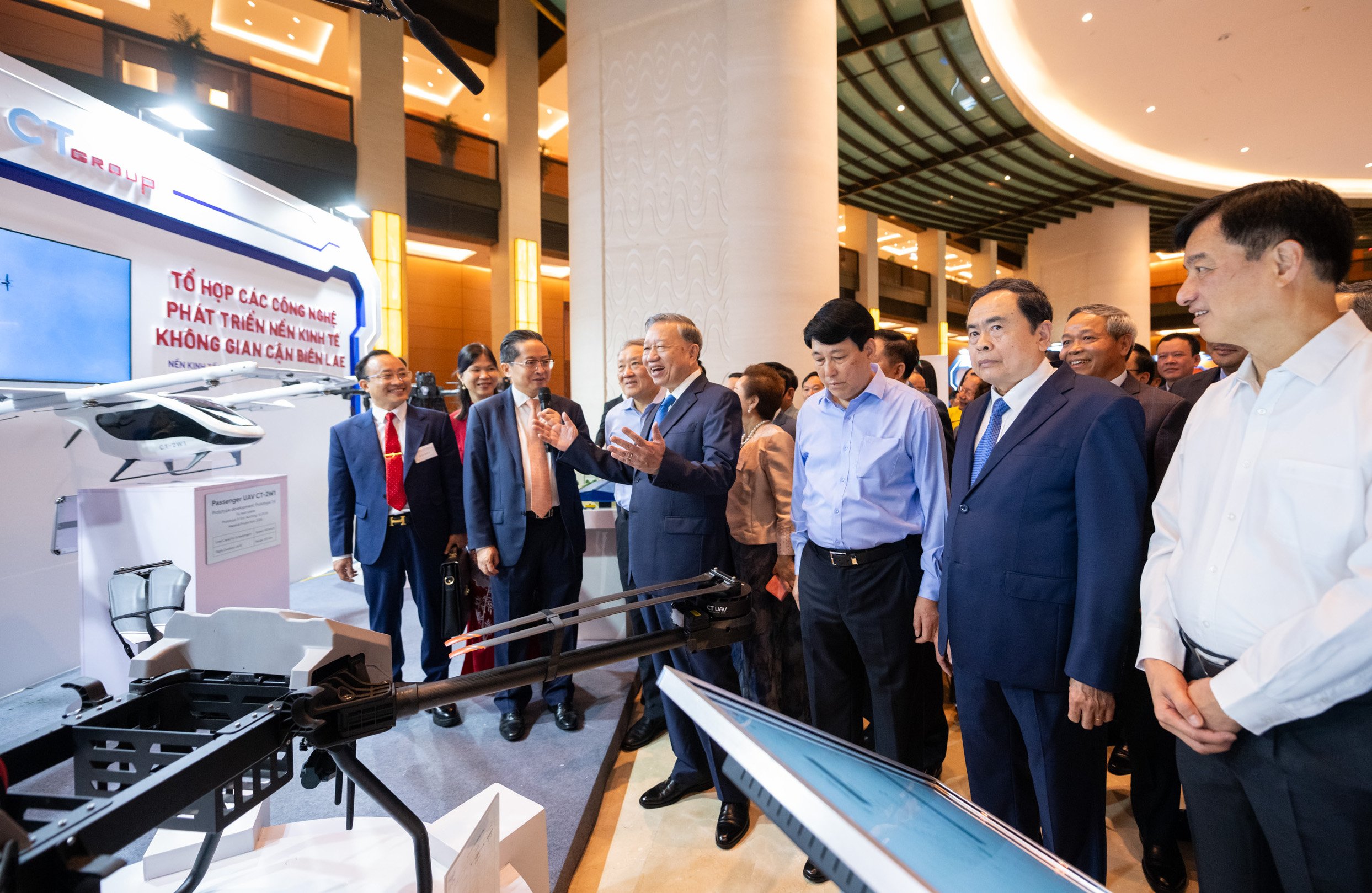
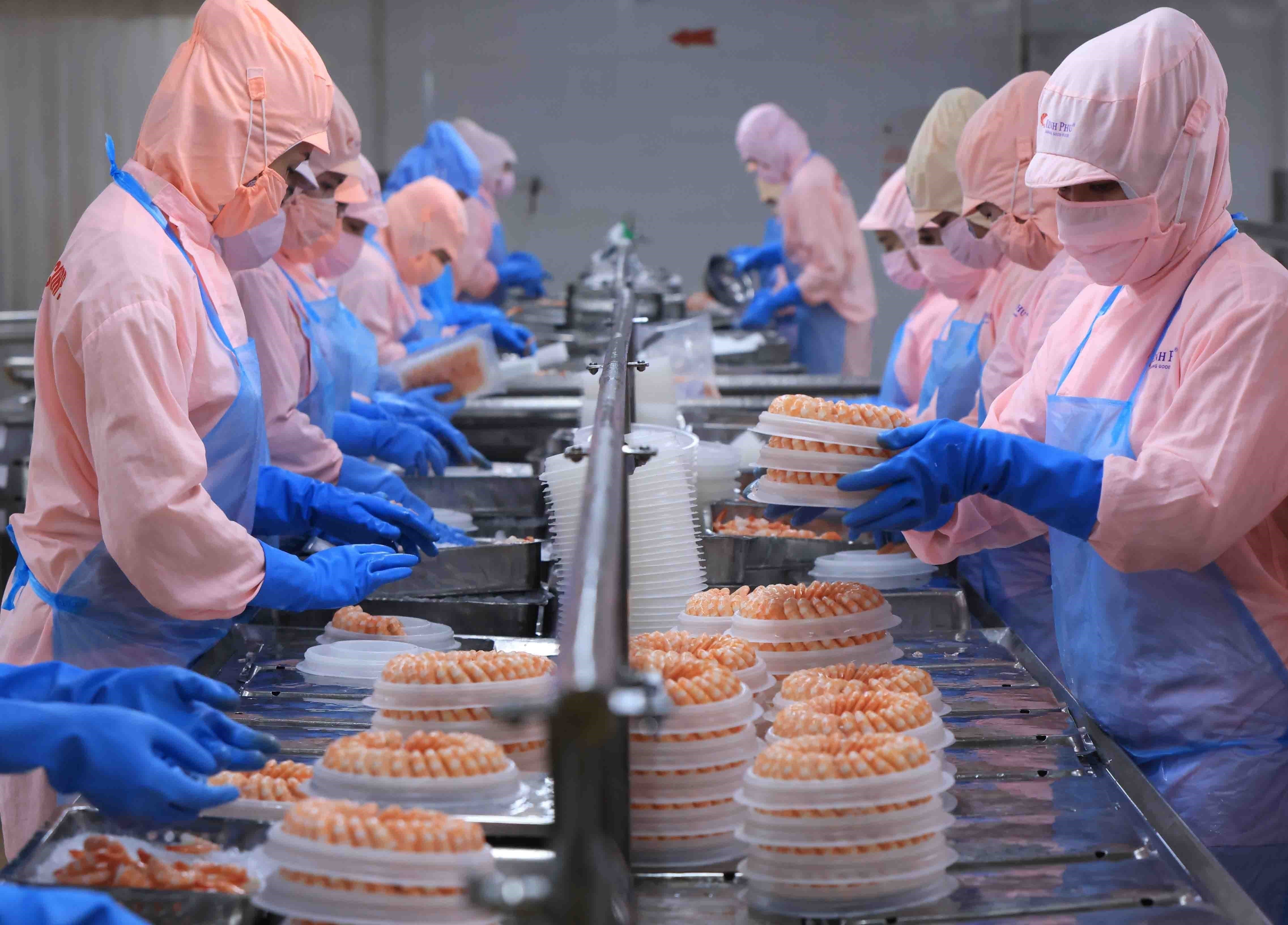








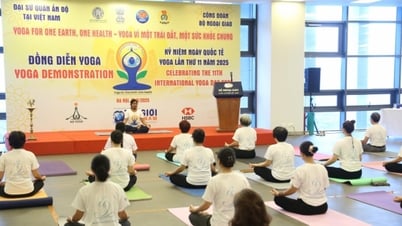

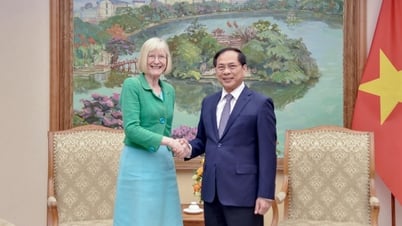
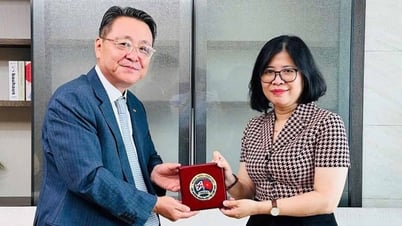






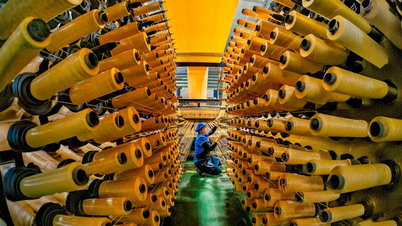
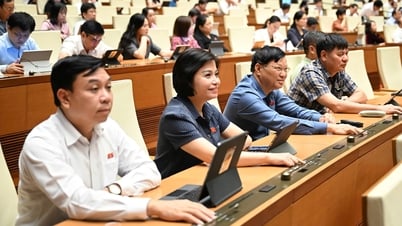

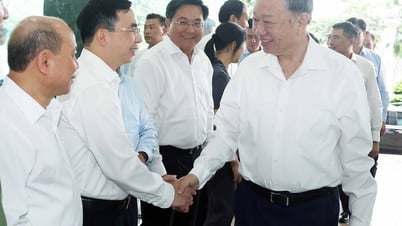
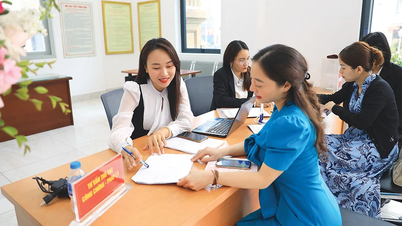
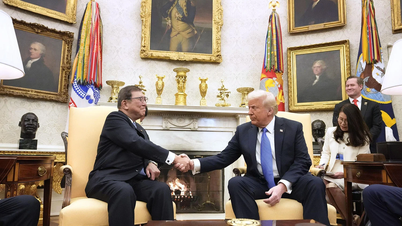









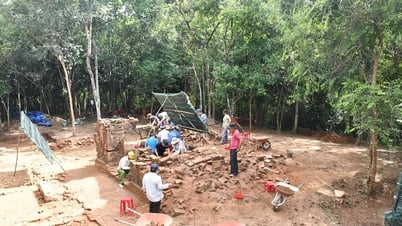












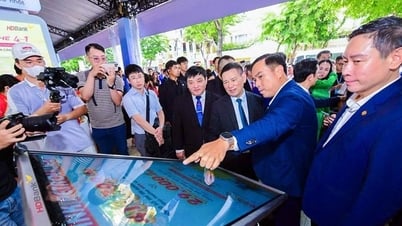

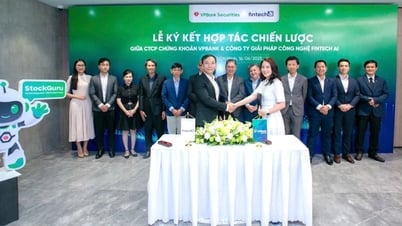





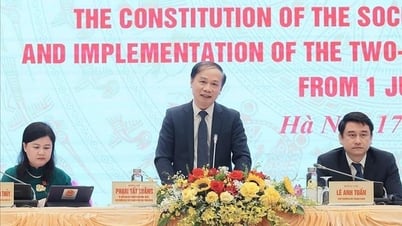




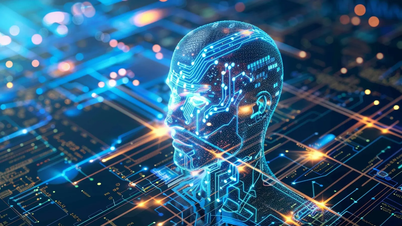
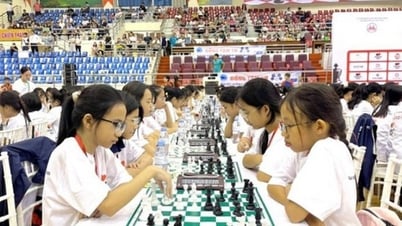

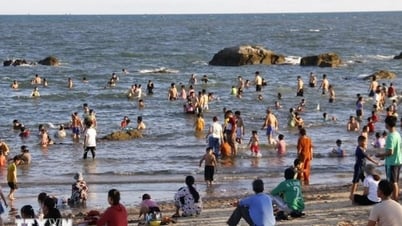



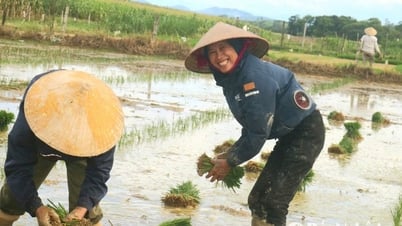

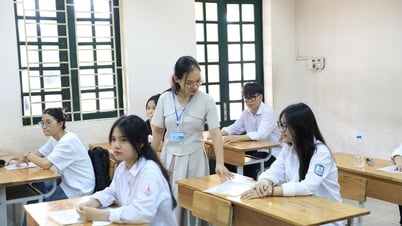

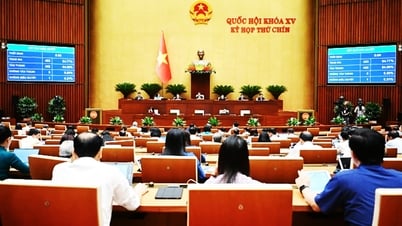



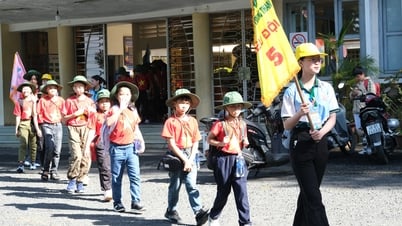

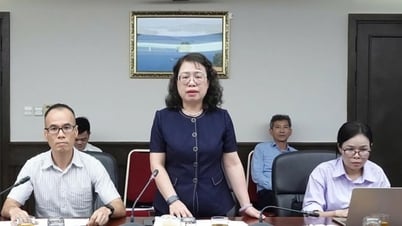










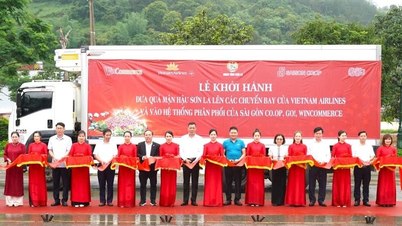




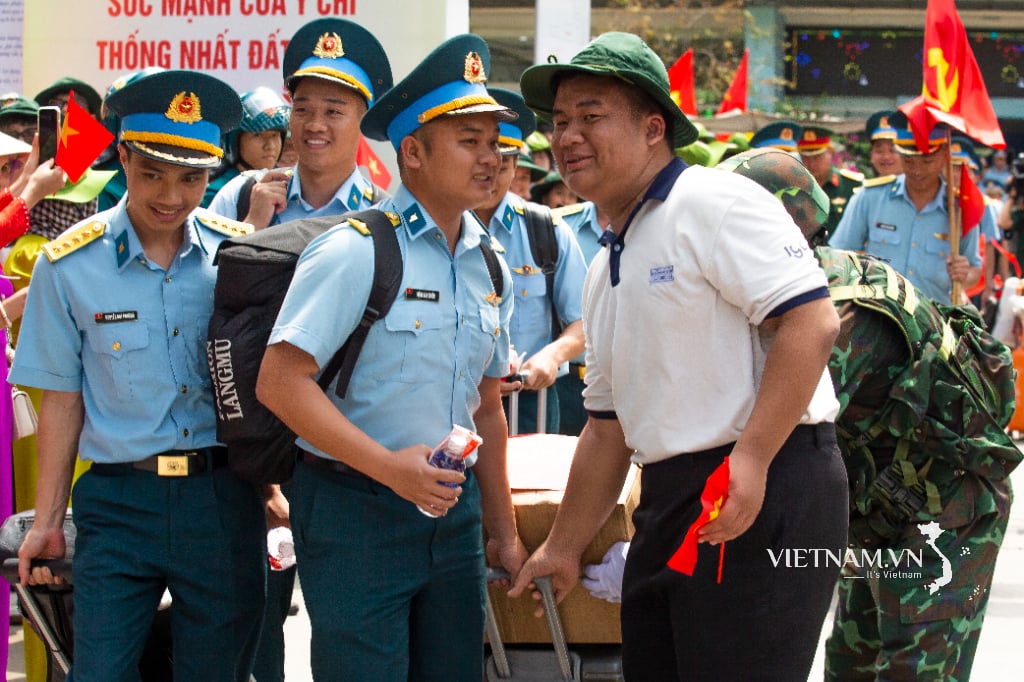
Comment (0)